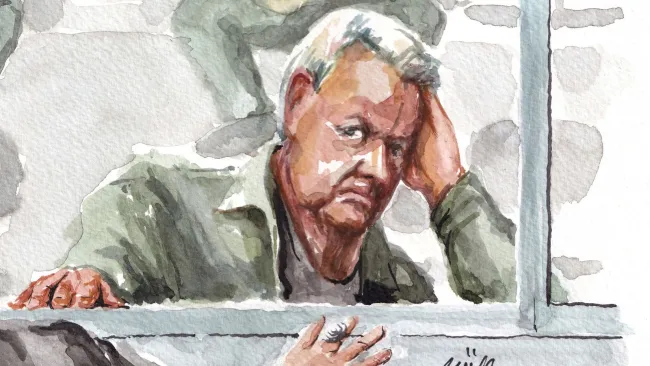Dominique Pelicot, France’s Monster of Depravity, Cowers Without Appeal—While His Accomplices Cling to Their Lies
Dominique Pelicot, the 72-year-old mastermind behind one of France’s most horrifying rape scandals, has chosen not to appeal his conviction—a decision that reeks of cowardice rather than remorse. For years, he drugged his wife, Gisèle Pelicot, and orchestrated her repeated rapes by dozens of men. His quiet acceptance of a 20-year sentence isn’t an act of repentance or compassion for his victim. Instead, it’s a calculated move to avoid the spotlight of another trial, where his monstrous actions would once again be laid bare.
While Pelicot retreats into silence, 17 of the 50 other convicted rapists are frantically appealing their sentences, desperately trying to rewrite their roles in this nightmare. During the trial, many of these men claimed they were “tricked” into raping Gisèle, insisting they believed it was a consensual threesome. Some even suggested they were the ones drugged. The audacity of these defenses is staggering, a chilling display of denial and entitlement.
At the center of this storm stands Gisèle Pelicot, a woman of extraordinary strength and resilience. She has not only survived unimaginable horrors but also confronted them head-on, refusing to be silenced. Unlike Pelicot, who hides from accountability, Gisèle has shown unwavering courage, prepared to face her attackers again if necessary. Her resolve is a powerful rebuke to those who sought to break her, proving that their actions have only made her stronger.
This case is a grotesque example of male entitlement and systemic denial. Pelicot’s refusal to appeal isn’t an act of penance—it’s the retreat of a man who knows he’s been exposed for the monster he is. Meanwhile, the 17 men appealing their convictions are a testament to a legal system that still allows predators to distort the narrative, casting themselves as victims rather than perpetrators.
Gisèle Pelicot’s fight is more than personal; it’s a rallying cry for all survivors of sexual violence who have been silenced, disbelieved, or ignored. The question isn’t whether she’ll face these men again—she’s already proven her unbreakable spirit. The real question is whether society will finally stand with her and say, “Enough.”
The verdict may be in, but the battle is far from over. Gisèle isn’t just fighting for herself—she’s fighting for every woman who’s been told to stay silent. The question is, who will join her in this fight?
